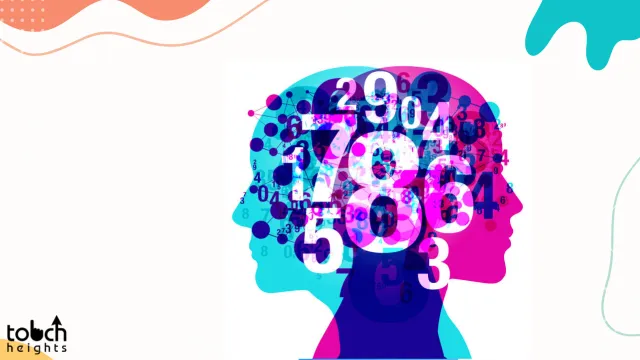A former mathematician turned cognitive neuropsychologist, Stan Dehaene is a 32-year-old who focuses on the cognitive neuropsychology of language and number processing in the human brain. He graduated from the University of Paris with a master’s degree in applied mathematics and computer science in 1985 and from the Ecole des Hautes Etudes en Sciences Sociales in Paris with a doctorate in cognitive psychology in 1989. He is currently working as a researcher in Paris at the Institut National de la Sante.
According to Dehaene, that number resembles color a lot. To provide just two very apparent examples, this can assist us in locating predators or choosing the ideal foraging locations. Because of this, evolution has given the brains of many animal species, including ours, basic numerical systems. These processes are quite restricted in animals, as we’ll see below: they’re approximate, their representation gets progressively worse for huge numbers, and they only use the most basic arithmetic operations (addition and subtraction). Additionally, we humans have the amazing good fortune to have acquired the skills of language and symbolic notation.
WHAT DO NUMBERS MEAN? AN ORGANIC FRAMEWORK FOR NUMBER SENSE
The mathematician Reuben Hersh has posed the question, “What is mathematics, really? This is a long-standing problem that troubled Einstein 23 centuries after it was raised in Ancient Greece. Since we don’t even appear to be able to agree on what the question’s true meaning is, I don’t think philosophical research alone can ever produce a suitable solution.
However, if we wish to take a scientific tack, we may explore more narrowly focused issues like where certain mathematical objects like sets, numbers, or functions originate from, who developed them, for what reason they were first used, how they have changed over time, how children learn them, etc. Thus, we may begin to formulate a far more precise definition of the nature of mathematics that is amenable to further scientific study in the fields of history, psychology, and even neuroscience.
This is precisely what I have been working on with a small group of cognitive neuropsychologists from different nations in a very basic area of mathematics, probably the most fundamental of all: the domain of the natural numbers 1, 2, 3, 4, etc. Our findings, which are now based on many tests, are somewhat unexpected: Our brain appears to be born with a sense of numbers. It indicates that fundamental math skills are a biologically innate trait of our species (and not just our own, since we share it with many animals). The knowledge of numbers and their relationships is also stored in a certain set of neural networks that are situated similarly in all of us.
In a nutshell, the ability to recognize numbers in our environment is as fundamental to us as echolocation or singing is to bats.
Now that the philosophy is through, what concrete proof is there to support these claims? According to Steve Pinker’s book How the Mind Works, psychologists are starting to understand that a significant portion of human mental functioning depends on the operation of biologically determined mental modules that are especially suited to certain fields of knowledge. For instance, humans appear to have domain-specific knowledge about a wide range of other items in addition to animals, food, people, faces, and emotions.
WHAT DO NUMBERS MEAN? AN ORGANIC FRAMEWORK FOR NUMBER SENSE
- It is necessary to demonstrate how having prior knowledge of the subject gives you an evolutionary advantage. This is fairly clear in the instance of basic math.
- Other animal species ought to have ancestors with the capacity. Therefore, it should be demonstrated that certain animals have basic mathematical skills. It should be possible to draw rigorous comparisons between their skills and those of people.
- Young children or even babies should naturally develop the skill, separate from other skills like language. It shouldn’t be learned by sluggish, domain-specific learning processes.
- It should be demonstrated that the aptitude has a unique neurological foundation. These four principles are shown in my book The Number Sense, which also examines their implications for mathematics education and philosophy. The aforementioned statements are backed up by substantial experimental data, making the number domain one of the subjects where there is the best evidence for a biologically determined, domain-specific system of knowledge. I’m only able to give a few examples of experiments here.
Animals are capable of simple mathematical operations. Rats, pigeons, parrots, dolphins, and primates, of course, can distinguish between visual or aural patterns based just on quantity (every other physical parameter being carefully controlled). Rats, for example, can be trained to push one lever for two events and a different one for four occurrences, independent of the kind, duration, and spacing of the events, or whether they are auditory or visual. Animals can do simple addition and subtraction operations.
Conclusion:
Not only do laboratory-trained animals possess these fundamental skills, but also wild animals. However, to teach chimpanzees numerical symbols, years of instruction are required. As a result, many animals can approximately manipulate numerosity, but accurate symbolic manipulation of numbers is not one of them; it is a uniquely human skill or at least one that only develops fully in humans.







